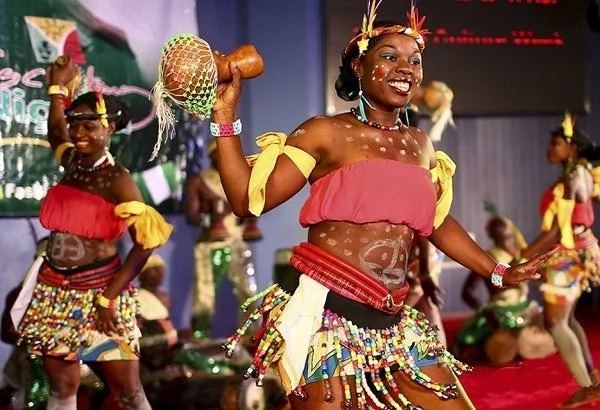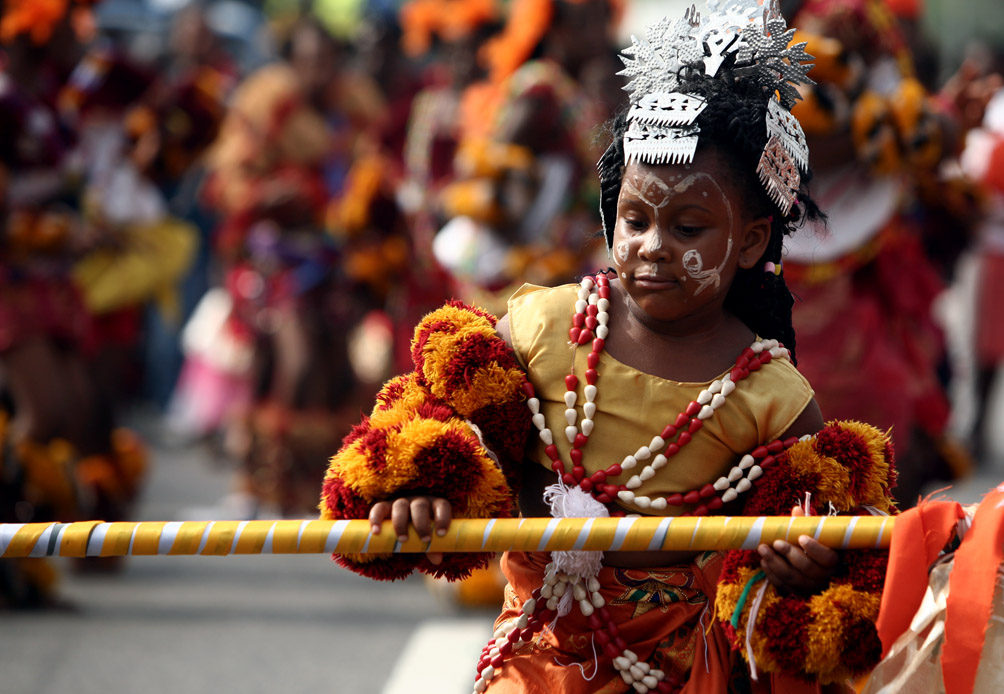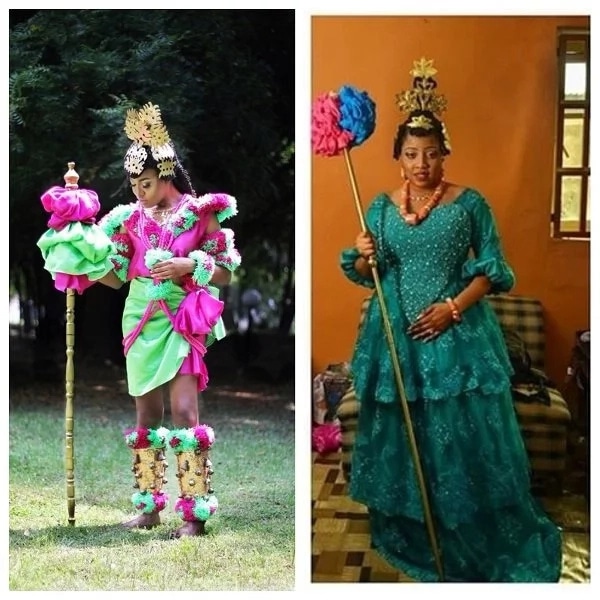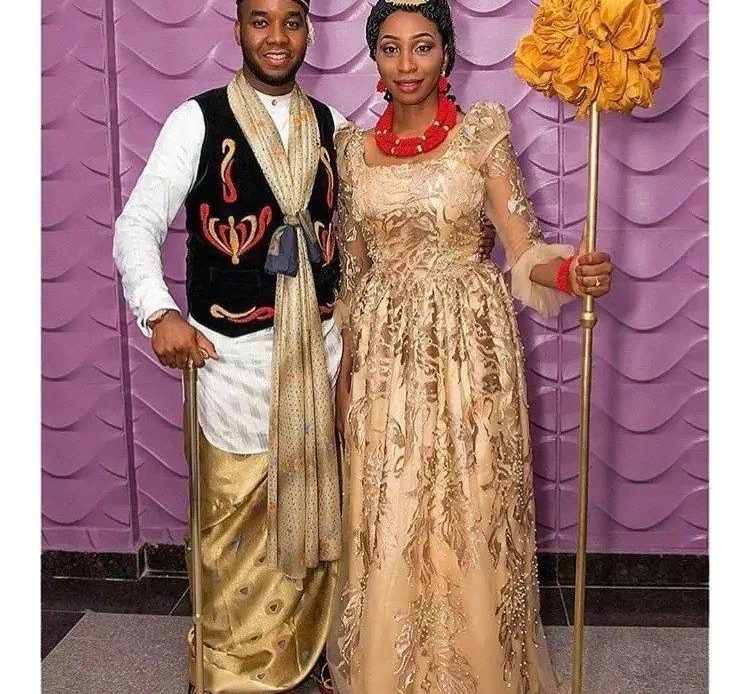Efik Traditional Attires

The Efik are an ethnic group located primarily in southern Nigeria, in the southern part of Cross River State. The Efik people occupy the basins of the Lower Cross River, down to southwestern Cameroon including Bakassi, the Calabar River and down to its streams – the Kwa River, Akpayafe (Akpa Ikang) and the Eniong Creek. Having associated broadly with foreigners in the pre-colonial era and beyond, the Efik people have still managed to preserve their culture to this day.
The Efik people boast of a rich culture comprising of a unique dialect, language, cuisines, dance, music, festival and dressing. On today’s Saturday Small Chops, we focus on the various beautiful traditional attires worn by the Efik people of southern Nigeria.
Efik traditional attires are a variety of vibrant and colourful materials made into different elegant styles to reflect the cultural richness and confidence of the Efik people. Once sighted, the native attires can be distinguished from a broad range of traditional clothing worn by different tribes in Nigeria.

In present-day Nigeria, different types of Efik traditional attires are worn based on occasions. For instance, some clothes are used exclusively for events such as the Ekpe masquerade festival or to perform traditional dances like the Ekombi Dance, each one, having an eye-catching detail and significance.
Efik Ceremonial Attires
To perform a traditional Abang Dance, for example, dancers wear special headpieces called Ibuot Abang. Since regarded as a dance of beauty and femininity, dancers are usually decorated with bird feathers fastened to flexible cane stems called Basinko. Additionally, these dancers are adorned with multiple strings of colourful beads around their neck called Nkwaesit Itong, and some across their shoulders, called Anana Ubok as well as colourful raffias worn on the hand. The raffias, Ekpaku Ubok are worn along with Mkpat Etim, which are worn on the leg with bells.

Also, the dancers wear Akasi, a beautifully made skirt made from cane, to attract attention to their waistline.
On the other hand, members of the Ekpe society cult are mostly dressed in ceremonial Ukara cloth, a blue and white material with the nsibidi signs on it. The Ukara cloth is used as a wrapper or allowed to hang down freely as a mantle. This style of clothing is not extended to the general community or for daily use.
Efik Traditional Wedding Attire
During Efik Traditional marriage ceremony, brides are mostly adorned with bright shining pieces of clothing worn elegantly. Efik boasts of two main types of native wedding attire called Ofod Ukod Anwang and Onyonyo.

Ofod Ukod Anwang
This attire consists of two pieces of clothing, one a skirt that drops from the waist down to the bride’s knee and the other, a small cloth covering the bride’s upper body. This selected kind of dressing is mainly to showcase the bride’s waist and how feminine and stunning she looks. The dressing is often beautified with accessories of different sorts, elaborate headpieces and a well-decorated staff.
Read Also: Agbada
Onyonyo

Onyonyo is a long, flowing dress that gives the bride an elegant look. The dress is mostly decorated with coral beads, in addition to the beads placed around the bride’s neck for further beautification.
It is important to know that these attires are usually accompanied by beautifully crafted beaded shoes, the latest traditional hairstyles and ornaments worn on the head. The attires are chosen to intentionally showcase the elegance of women.

The grooms on the other hand are usually a sight to behold. They are mostly dressed elaborately in traditional Efik attires which includes a wrapper, a white shirt and a piece of colourful cloth wrapped around their waist. Around their necks, they wear Okpomkpom as well as a beautifully made beaded shoe and cap to complement their looks.
The Efik attires are delightful to watch.
Did you find this interesting? Please share your thoughts with us.
